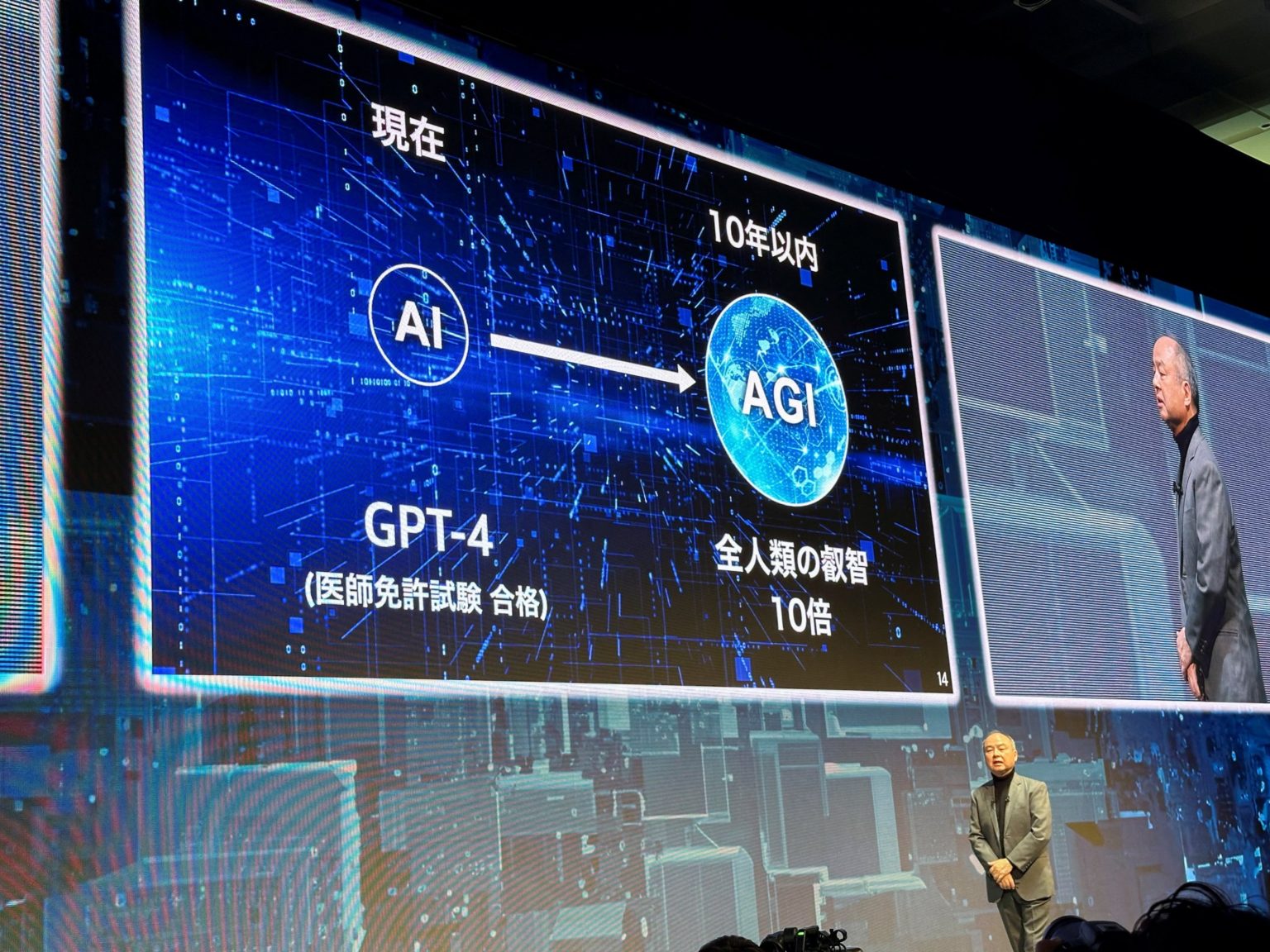|
Getting your Trinity Audio player ready...
|
In a surprising revelation at the SoftBank World corporate conference, SoftBank (9984.T) CEO Masayoshi Son shared his belief that artificial general intelligence (AGI), surpassing human intelligence in nearly all domains, will become a reality within the next decade. This bold prediction marks the first time Son has attached a specific timeline to the development of AGI.
Son’s vision for AGI extends beyond incremental advancements in artificial intelligence (AI) and foresees AGI being ten times more intelligent than the collective sum of human intelligence. He emphasized the swift progress in generative AI, pointing out that AI systems have already exceeded human capabilities in specific areas.
“It is wrong to say that AI cannot be smarter than humans, as it was created by humans,” Son asserted during his address. “AI is now self-learning, self-training, and self-inferring, much like human beings.”
Masayoshi Son has long championed the potential of AGI, often referring to it as the “singularity,” which he believes could profoundly reshape business and society. However, this is the first instance where he has publicly offered a timeline for its realization.
At the conference, Son introduced the concept of “artificial superintelligence,” which he expects to emerge in 20 years and surpass human intelligence by a staggering factor of 10,000.
Son’s track record includes astute investments that have propelled SoftBank into the realm of tech investment giants and ventures that have spectacularly faltered. He is also known for making ambitious claims about the transformative potential of emerging technologies. While his predictions about the mobile internet have largely come to fruition, his prognostications about the Internet of Things have fallen short of expectations.
In a call to action for Japanese companies, Son urged them to “wake up” to the potential of AI, asserting that they have been increasingly lagging behind in the age of the internet. He reiterated his conviction in Arm, the chip designer, as a pivotal player in the impending “AI revolution.”
Arm CEO Rene Haas, addressing the conference via video, emphasized the energy efficiency of Arm’s designs, stating that they would be in high demand for powering artificial intelligence applications.
Son’s prediction that AGI will materialize within a decade appears to be an outlier among experts in the field. Haas, for instance, expressed his belief that AGI would emerge during his lifetime but refrained from specifying a precise timeline.
As the debate on the timeline and implications of AGI continues to unfold, Son’s bold projection will undoubtedly spark discussions and speculation within the tech industry and beyond. The race to achieve AGI remains a compelling narrative in the ongoing evolution of artificial intelligence.
